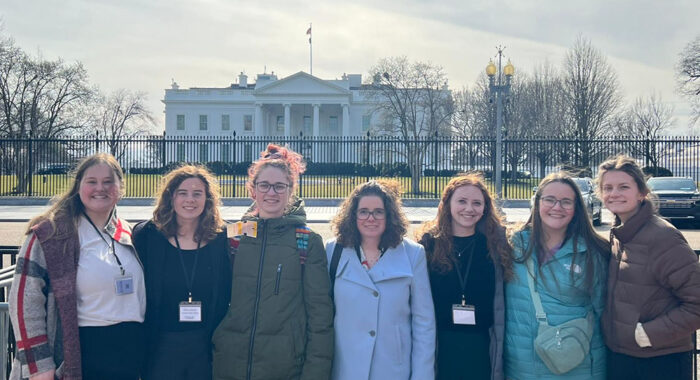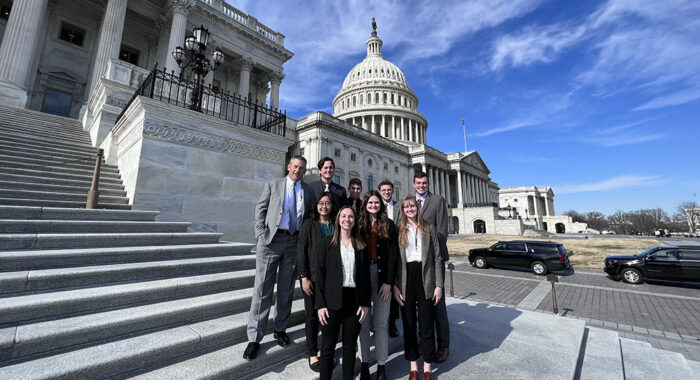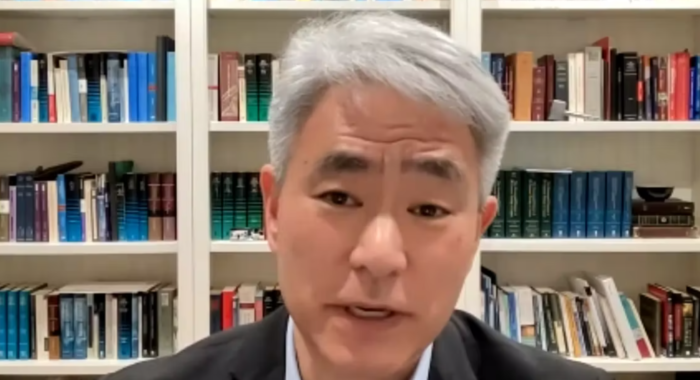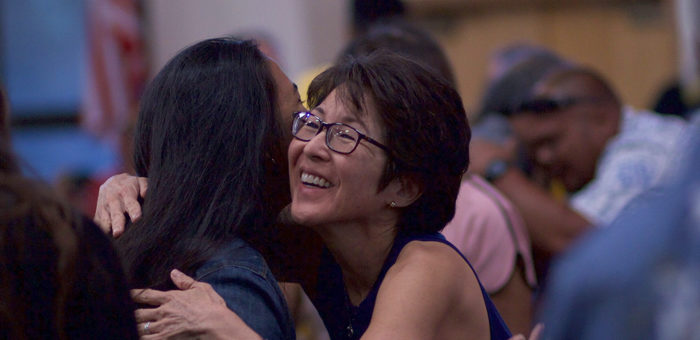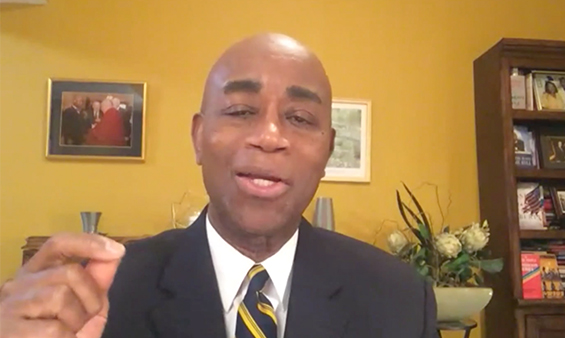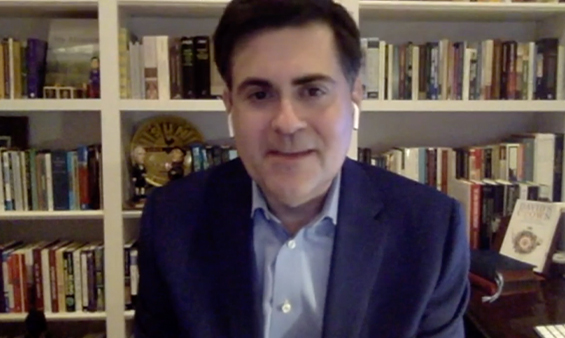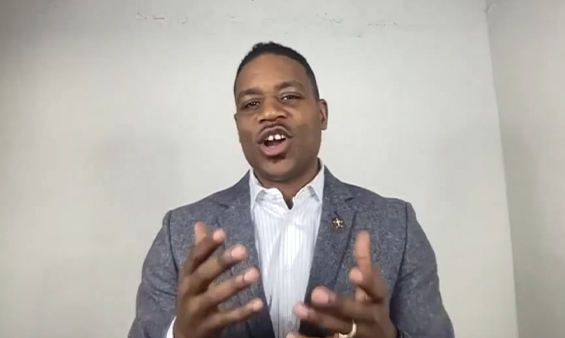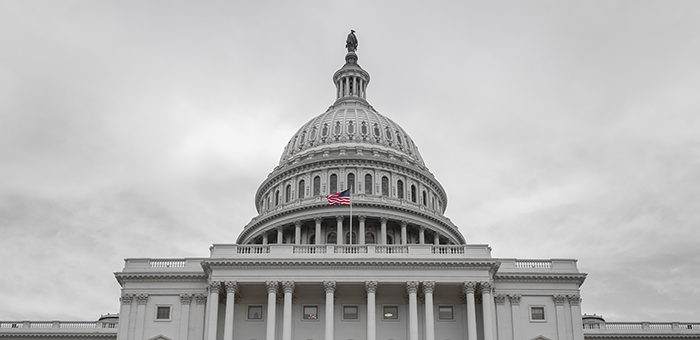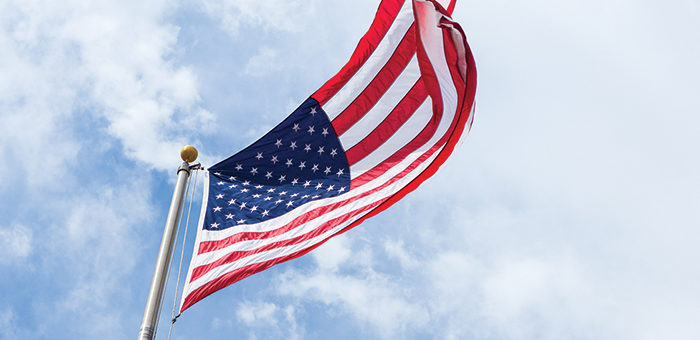As a young man newly hired out of Denver Seminary by Robert Dugan to the Washington office of the National Association of Evangelicals, among the first people I was introduced to were two giants of evangelicalism — Carl F. H. Henry and Frank Gaebelein, theologians and former co-editors of Christianity Today.
Both men lived in Arlington, Virginia, just blocks away from one another, and Gaebelein became a mentor. One conversation I’ll never forget. At a dinner put on by Helga Henry, they asked, “Would the NAE lean into the moment and reach out to be the voice for all evangelicals?” Gaebelein was a Democrat who put the emphasis upon the word “all,” and Henry was a Republican who put it on the “reach out.” I replied, “I hope so and would value your help and friendship in doing so.” They did, and we all should be grateful.
Henry and Gaebelein were characteristic of the larger evangelical world and agreed to disagree amicably over Reagan’s agenda, the environment, and how best to meet social needs, among many things, but both wanted the NAE to be the “voice” of the movement. Both men helped “reform” fundamentalism, and believed that the challenge would continue. They were right. Today, challenging a 21st century version is risky. Leadership always pays a price, and courage is not always rewarded. But doing so is the “peacemaker” role lauded by our Lord.
Visionary leaders from the NAE gathered in 1942 and became known as the “neo” evangelicals. Over the course of 75 years, this vision for a new kind of evangelicalism has stood against leftist, atheistic secularism; apostasy in some mainline Protestant denominations; but also religious and political bigotry by alt-right, neo-Nazis and nationalistic hate groups.
And during each stage of the association’s life, it has crossed boundaries to challenge norms. The organization put its name, leadership and advocacy behind landmark freedom bills such as the Equal Access Act, Religious Freedom Restoration Act, International Religious Freedom Act, Trafficking Victims Protection Act and many more. Each of these initiatives remains in force and gives freedom to millions here and worldwide as a result.
History books record that this collaboration with would-be opponents on behalf of the persecuted and prisoners, school children and victims of genocide and abortion, as well as polluters, is what Francis Schaeffer dubbed “co-belligerency.” It suggests that compromise in pursuit of the common good is not a moral failure and that one need not agree with collaborators to pursue higher ends together. Consider it a legislative version of the NAE’s early motto “cooperation without compromise.”
In my own mind, the best example of working across boundaries is NAE’s 1996 Statement of Conscience on International Religious Persecution. This statement led to collaboration with the Clinton administration to pass the International Religious Freedom Act and the creation of an ambassadorial position and commission that continues to this day.
Today, polarization on Capitol Hill and in our culture would make passage of these initiatives all but impossible. The perception of an evangelical identification with one political party jeopardizes its vision. And, if evangelicals want to continue working across boundaries they must transcend partisanship.
Leadership exacts a price, and that includes being misunderstood. But the times call for it, no less so than when the NAE leaders met in St. Louis in 1942 and rejected the fundamentalist vision of their day.
Are we as a nation in trouble? You betcha. Entering into the 21st century, America is experiencing a deficit in moral leadership. The issues that we face — the degrading of human dignity, climate change, civilization conflict, war and violence — will require not just leadership that has been desperately lacking but moral imagination of a kind previously unheard of.
According to Jim Collins, author of “Good To Great,” “These leaders blend extreme personal humility with intense personal will. They are studies in duality. Modest and willing, shy and fearless.”
The times require, in my mind, people who realize they have an obligation that goes far beyond their own personal interests. The leaders of the NAE have exemplified this spirit. May they continue to lead the broader evangelical community in gracious humility, reaching across boundaries for the sake of the nation and world.
This article originally appeared in Evangelicals magazine.
Richard Cizik is president of the New Evangelical Partnership for the Common Good, a faith-based organization committed to an agenda that fosters values consistent with an open and free society. He served for 10 years as NAE vice president of government affairs. In 2008, he was named to TIME Magazine’s list of the 100 most influential people. Civic has published many articles and editorials and is the author of “The High Cost of Indifference.” He holds degrees from Whitworth University, Denver Seminary and The George Washington University School of Public and International Affairs.




 View All Articles
View All Articles 








